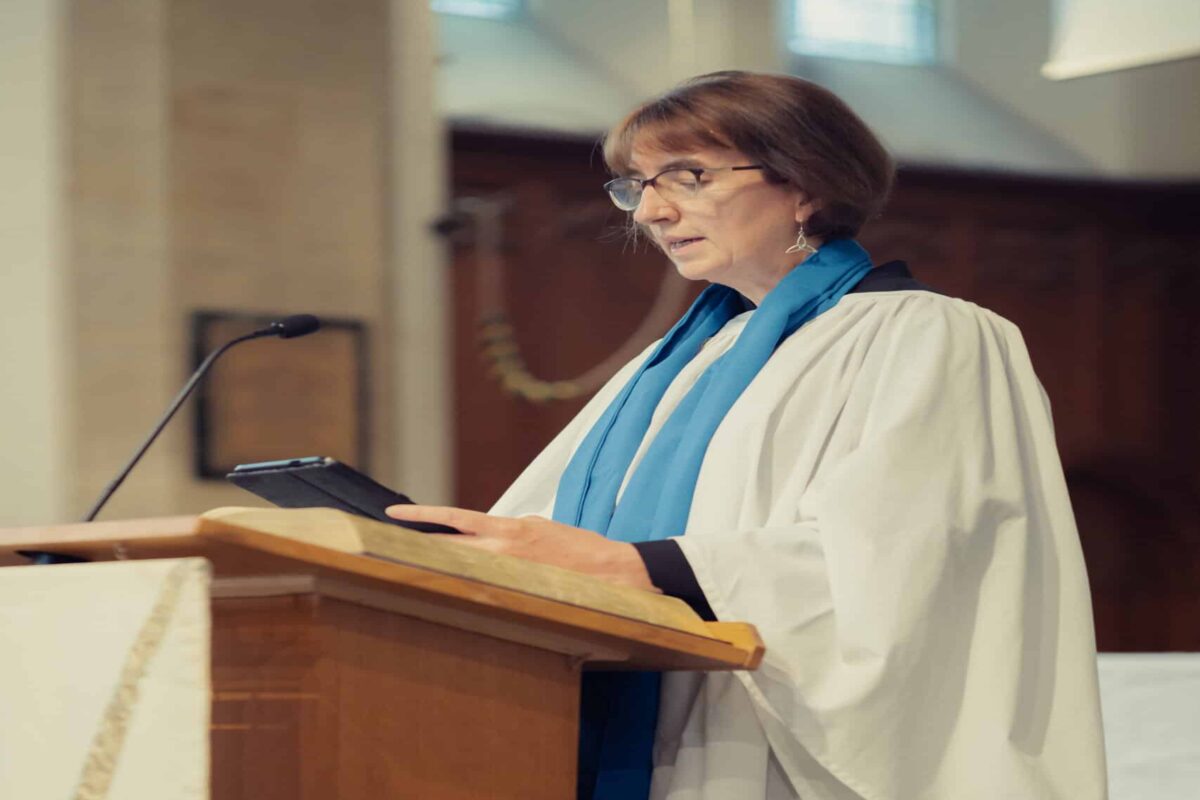Discernment process and training for LLMs
The process towards becoming a Licensed Lay Minister normally begins with an informal conversation with your vicar, who will contact the local Area Warden of LLMs. Then a process of discernment begins; your Area Warden of LLMs will explain the Area process, and if that goes well you will be invited to a Diocesan panel interview, either in person on or online. The diocesan panel reports to your Area Bishop, either recommending you for training as an LLM, or suggesting that you may be called to another form of service.
As part of the formal discernment process, the candidate will need to complete an application form (download at the bottom of this page) and equal opportunities monitoring form (last page of the application form), provide references, and meet with one Clergy and one Lay Assessor. You will also be required to complete a DBS check. Your vicar will be asked to complete a reference, and a nomination form from the PCC will also be requested.
Upon invitation to a panel interview, the candidate will then need to complete a DBS check. Your vicar will be asked to complete a reference, and a nomination form from the PCC will also be requested.
Reading through and reflecting on the LLM Qualities Grid will give you an understanding of what is being looked during the discernment process. It may also be helpful to reflect on it with your parish priest.
Training
Successful candidates are invited to complete a period of training, through the St Edmund’s Course in Christian Studies. You can choose to start the Christian Studies course before entering the discernment process, and go through the discernment process during the two years of Christian studies (with applications to be made no later than Easter of the second year). Or, you can complete the discernment process before you start the course.
If you think LLM ministry may be for you, talk first to your parish priest. For more general enquiries, email LLM@london.anglican.org.
File Downloads
LLM6: Guidelines for Assessors
Introduction
The purpose of the assessment interviews are to assist the Area Bishop and selection panel with some evidence that there is a vocation rooted in a strong faith and that there is potential for public ministry or that the candidate may be guided in another direction. Given below are the selection criteria that candidates, incumbents and referees are given.
The assessment interview
An assessment interview should last between and an hour and an hour and a half, and should be followed up with a brief report and any recommendation to the Area Warden of Licensed Lay Ministers.
The selection criteria have been updated and replaced with assessment against a list of qualities. The qualities are
- Love for God
- Call to Ministry
- Wisdom
- Fruitfulness
- Potential
For more detail, please refer to the LLM Qualities Grid (download above) which is available to download as a candidate-facing document from the diocesan website.
These will be used for the discernment process from 2023.
Alongside the qualities you may like to consider whether the candidate:
- has a reasonable working knowledge of the structures and culture of the Church of England and is firmly rooted in their local church community
- has the ability to speak openly and creatively about their faith
- can speak of their faith journey and communicate it to others
- has a secure and rooted spirituality
- is open to the diversity of traditions within the Church of England
- is able to engage creatively with change and an ability to help others to do so
- has the ability to communicate in a wide range of contexts and to understand the views of others
- can demonstrate a commitment to theological study and be willing to undertake the three year course at St Mellitus College or the Christian Studies Plus course at St Edmund’s.
What are you looking for in a candidate?
There are three core giftings that LLMs will have to fulfil in their ministry. When being considered for selection they will need to show potential to:
- clearly know and express the good news of Jesus Christ
- teach and train others in the Christian faith
- be leaders in ministry and mission, in partnership with incumbents and other lay leaders in the parish
And candidates should be capable of undertaking satisfactorily a course of study and ministerial preparation with an open and enquiring mind.
It is likely that LLMs will undertake a specialism in one or more of the following areas. However, all candidates for LLM should be able to show some potential in all of these areas of ministry:
- Preaching and Leading Worship (including All Age Worship)
- Christian Formation and Development (including Evangelistic Courses, Discipleship Training & Small Group work)
- Pastoral Ministry (including marriage and baptism preparation, funeral and bereavement ministry)
